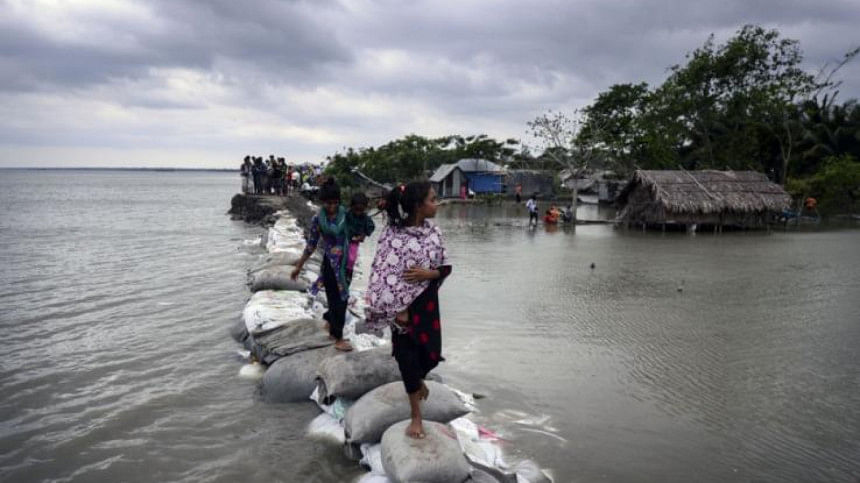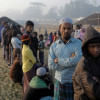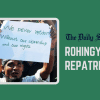Dhaka seeks UNSC's 'bold steps' to address climate challenge

Bangladesh has asked for a "bold decision" from UN Security Council (UNSC) to ensure security and peace across nations by addressing climate challenge through partnership and collaboration.
"We must work together in collaboration and partnership to save this planet from destruction," appealed Foreign Minister Dr AK Abdul Momen in a video statement issued for the Berlin Climate and Security Conference 2020.
Dr Momen said the UN Security Council cannot evade this issue (climate change) any longer. "Let them take bold decisions in consultation with relevant stakeholders for a better world."
Evading climate change issues for any longer by the UNSC is likely to increase the potential of serious security and stability problems for many countries.
He said the UNSC must help implement the Paris Agreement which aims to strengthen global response to the threat of climate change by keeping global temperature rise below 2 degrees celsius as well as support the ability of countries to deal with the impacts of climate change.
Terming the pandemic an eye-opener for all countries, Dr Momen said if global temperature goes up above 1.5-degree celsius, not only will climate vulnerable Bangladesh or Maldives suffer but many major cities will be at risk.
In terms of climate change, he said, Bangladesh is one of the most vulnerable countries in the world. If there is a one-meter sea level raise due to global warming, one-fifth of the country will go under water that may uproot 30 to 40 million people from their habitats.
"If millions are uprooted, it will be a security risk not only for Bangladesh but also for the region," he warned.
Bangladesh became President of Climate Vulnerable Forum (CVF), a platform of 48 climate vulnerable countries.
Dr Momen said it is imperative to put focus on mitigation and adaptation over losses and damages due to the climate change.
Security Conference
The first part of the 2020 Berlin Climate and Security Conference is being taken place on June 23 and 24, bringing together leading figures from governments, international organisations, the scientific community, private sector and civil society through two scientific online workshops and a digital high-level political segment to be held this (Wednesday) afternoon.
From September 7 to October 2, the second part of the BCSC 2020 will focus on how more comprehensive risk assessments could support forward-looking and preventative foreign and security policies.
There is increasing evidence that climate change is undermining livelihoods, food and water security in rural and urban areas around the world, thereby acting as a "risk multiplier" in fragile and conflict-prone situations.
The conference is exploring how more comprehensive climate-security risk assessments could help create a forward-looking and preventative foreign and security policy, and offer a space to discuss the role that the international community, and the UN Security Council in particular, can and should take in this respect, including during Germany's membership of the UN Security Council in 2020.
After launching the Berlin Call for Action in 2019 and working to increase the momentum for decisive action to address climate-related drivers of conflict and instability, this is the second such event.
The Berlin Climate and Security Conferences are hosted by the German Federal Foreign Office in partnership with Adelphi and the Potsdam Institute for Climate Impact Research (PIK).

 For all latest news, follow The Daily Star's Google News channel.
For all latest news, follow The Daily Star's Google News channel. 






Comments